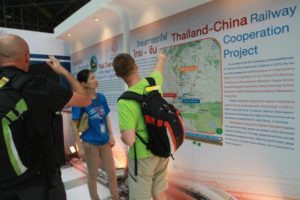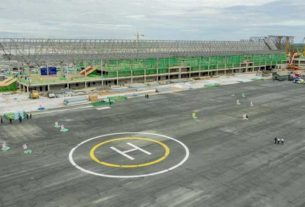
Progress on the Sino-Thai high-speed rail project is expected to be made at this month’s meeting, says the Public Debt Management Office (PDMO).
Thailand and China will hold a 13th meeting to settle construction plans, funding sources and land expropriation for the 252-kilometre project, said PDMO director-general Suwit Rojanavanich.
Differences in cost estimates have been an issue in the lengthy talks, with Thai officials coming up with lower figures than those calculated by their Chinese counterparts. Budget debates have made project valuation uncertain and unpredictable.
In May, Chinese authorities estimated the cost at 190 billion baht while Thai officials suggested 170 billion. In June, Beijing came up with a higher figure of 200 billion baht but Bangkok estimated 180 billion.
Despite these financial differences, both countries have agreed construction of the first 3.5km section of the track should begin in September in Nakhon Ratchasima’s Pak Chong district.
Which currency will be used to finance the project is another issue, Mr Suwit said. China wants to use the yuan to keep costs low, but Thai counterparts prefer the US dollar for its ease in swapping with other currencies.
“We need to discuss with China how much the interest rate will be for the yuan and the dollar,” Mr Suwit said.
The partners also need to decide who will be responsible for expenses for design, building materials and rolling stock.
The 1.435-metre track gauge is the appropriate size for high-speed trains, but it also needs to be discussed because the railway will connect with other countries, Mr Suwit said.
Separately, he said the PDMO has prepared a borrowing plan for the Orange Line electric train route linking Thailand Cultural Centre to Min Buri in eastern Bangkok.
A loan from the Asian Development Bank and proceeds from the Thailand Future Fund’s unit trust sales are expected to be the project’s funding sources.
Nine private companies have bought bid envelopes to construct the Orange Line and must submit them to contest the bidding by Oct 31.
They include Ch. Karnchang Plc, Sino-Thai Engineering & Construction Plc, Italian-Thai Development Plc, Unique Engineering and Construction Plc, Nawarat Patanakarn Plc, Sinohydro Corporation Co and SK Engineering.
Source: http://www.bangkokpost.com/news/transport/1058422/sino-thai-rail-project-talks-to-decide-details


